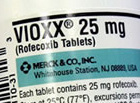|
|
|
Fed chief says subprime losses could hit $100bn
Business |
2007/07/19 02:05
|
Total losses from the subprime mortgage meltdown may be in the order of $50bn to $100bn, according to estimates cited by Ben Bernanke in testimony to Congress on Thursday. The Fed chairman said:"There clearly will be some significant financial losses associated with defaults and delinquencies on these mortgages." Mr Bernanke also cautioned Congress against legislating narrowly on China's exchange rate, rather than addressing this in combination with the need for structural reform. He said the exchange rate was "not a subsidy in the legal sense" but rather the cause of distortions in the Chinese economy that channel resources towards exports rather than production for domestic demand. |
|
|
|
|
|
|
Ehrlich's law firm moving to Baltimore
Law Firm News |
2007/07/18 22:42
|

Womble Carlyle Standridge & Rice, a national law firm headed in Maryland by former Gov. Robert L. Ehrlich Jr., has signed a lease to move its state offices from Linthicum to downtown Baltimore within the next two months, commercial brokerage Cushman & Wakefield Inc. said Wednesday.
The firm has signed a lease for 17,737 square feet at 250 W. Pratt St., a 24-story, 368,194-square-foot office building owned by Behringer Harvard Funds. "We are thrilled to have such a prestigious law firm choose 250 W. Pratt Street as its Maryland office location," Tim Jackson, a broker with Cushman & Wakefield, said in a news release. "We look forward to working with Womble Carlyle as they continue to growth their practice in Baltimore." Terms of the lease were not disclosed. In addition to Jackson, Cushman & Wakefield brokers T. Courtenay Jenkins and Whitney M. Nye represented Behringer Harvard in the deal. Andy Andrews, a broker with Colliers Pinkard, represented Womble Carlyle. The lease brings 250 W. Pratt St. to a 95 percent occupancy, leaving just 16,000 square feet vacant. Jenkins said the asking rent for that space ranges from $27.50 to $28.50. The deal partially offsets plans by another law firm, Semmes, Bowen & Semmes, to move its offices from 250 W. Pratt St. to 25 S. Charles St. The firm, which needs about 60,000 square feet, plans to move in April 2008.
http://www.wcsr.com
|
|
|
|
|
|
|
Court Sends Vioxx Suits Back to Judge
Law Center |
2007/07/18 22:34
|
| A federal appeals court revived a group of shareholder lawsuits that accused Merck & Co. officers and directors of violating their duties by concealing the health risks of the company's Vioxx painkiller. The three-judge panel of the 3rd Circuit Court of Appeals ruled Wednesday that the lawsuits should be sent back to the New Jersey federal judge who dismissed them in May 2006. Vioxx, once a $2.5 billion-a-year blockbuster arthritis drug, was taken off the market in 2004 after a study found that users had a higher risk of heart attack, stroke and death than patients taking dummy pills. The appeals court concluded that U.S. District Judge Stanley R. Chesler erred in not allowing the plaintiffs to amend their complaint with additional materials. Chesler had ruled on the grounds that those materials were acquired as a result of a consensual discovery agreement. The panel said the district judge needs to determine whether the additional materials would affect the lawsuit's merit. Since it is a shareholder suit, the plaintiffs normally would have been required to first make a demand upon the company's board of directors. But the plaintiffs said such a demand would have been futile at the time they began the lawsuit. "Of course, we express no opinion about whether the newly acquired facts that are included in the amended complaint will alter this analysis," the 3rd Circuit judges wrote. "The allegations must not simply demonstrate an aloof or negligent board, but nonfeasance that rose to the level of egregiousness or bad faith." "We look forward to presenting our arguments anew to the district court under the guidance provided by the appellate court today," said Ted Mayer, an attorney for Merck. "Given that today's ruling did not challenge the reasoning of the lower court in previously dismissing the lawsuit, we believe that the outcome should be the same." A message left with an attorney for the plaintiffs was not immediately returned. |
|
|
|
|
|
|
Rudy gives idea of ideal Supreme Court Justice
Practice Focuses |
2007/07/18 22:28
|
| Rudy Giuliani pledged Wednesday to appoint Supreme Court justices in the model of conservatives Antonin Scalia and Clarence Thomas, hoping to win over anti-abortion Republicans in this key first-caucus state. But Giuliani avoided any mention of whether he would seek to overutrn the Roe v. Wade abortion rights decision -- now potentially just one justice from being repealed -- insisting he would not have a litmus test on that or any other issue. Giuliani named those two justices, along with President George W. Bush's two picks, Chief Justice John Roberts and Justice Samuel Alito, as the kind of people he would put on the court. He said they don't try to write laws from the bench but only interpret the Constitution "in a way that will protect your rights and my rights. They will not get it into their heads that they're really legislators and they can go around changing things," Giuliani said. Bush himself had mentioned Scalia and Thomas as his model judges during his 2000 campaign -- a move widely viewed as a way to signal conservatives that he would move the court rightward, including on Roe v. Wade. But conservatives then knew that Bush was personally opposed to abortion. Giuliani is using a similar pledge to convince conservatives that he would look beyond his personal views in support of abortion rights in pickng justices, raising questions of whether it will be as effective an appeal. Giuliani also defended his record of picking mostly Democratic judges as New York mayor, saying those people didn't decide constitutional issues but mainly presided over criminal cases. Giuliani is making his first swing through heavilly Republican western Iowa today and tomorrow, seeking to convince voters he is not bypassing the state's January caucuses despite mixed signals from his campaign. |
|
|
|
|
|
|
Republicans Block Iraq Withdrawal Measure
Politics |
2007/07/18 20:20
|
| Republicans on Wednesday made good on their promise to block a Democratic effort to mandate a troop withdrawal from Iraq after an all-night session organized by Democratic leaders to "dramatize" the procedural fight over the measure. The Levin-Reed Amendment, named for the two Democrats who crafted it, would have required that President Bush begin a troop withdrawal within 120 days of the amendment's passage. It would also have set an April 30, 2008, deadline to bring troop levels in Iraq to a "limited presence." Senate Majority Leader Harry Reid (D-Nev.) organized the rare all-night session in an attempt to dramatize the fight between Republicans and Democrats over the amendment. The amendment, which was attached to the Department of Defense authorization bill, had majority support thanks to several Republicans who backed it. But Republicans used a procedural maneuver available to the minority party to require a 60-vote majority to move the bill forward. Democrats only mustered 52 votes in favor of invoking cloture, falling short of the 60 required. Forty-seven senators voted against cloture. Reid at first voted in favor of cloture, but changed his vote at the last minute to join Republicans opposing it. Reid’s vote against cloture allows him to call for another vote on the measure at a time of his choosing, according to spokesman Jim Manley, who said the switch was “only for procedure.” Reid expressed his disappointment at the outcome shortly after the vote but pledged to keep trying to pass legislation aimed at changing course in Iraq. "We spent two days showing America that we're not going to back down, that we're going to continue to fight," he said. "How could we possibly shrink from this fight? How could we possibly try to avoid this fight?" Reid had accused Republicans of obstructionism for blocking a simple-majority up-or-down vote on the amendment. But Republicans defended their maneuver as a standard tool of the minority party. In a news conference before the all night session began Tuesday, Sen. John McCain (R-Ariz.) said that "time after time when the other side was in the minority they also invoked the 60-vote requirement."
|
|
|
|
|
|
|
Court OKs pat down searches at 49er games
Court Watch |
2007/07/18 12:30
|
| A state appeals court on Tuesday said that the San Francisco 49ers may continue to pat down fans before they enter Monster Park for the football team's home games. Two season ticket holders sued the team for invasion of privacy in 2005 after the 49ers instituted the policy that season as part of the National Football League's anti-terrorism security efforts. The California Court of Appeal, in a 2-1 decision, said that Daniel and Kathleen Sheehan waived their privacy concerns because they knew of the pat-down searches before they bought their tickets for the 2006-2007 season. They sued in December 2005 after experiencing pat-down searches that season. The court said the couple could quit going to games if they were offended by the searches. "By voluntarily re-upping for the next season under these circumstances, rather than opting to avoid the intrusion by not attending the games at Monster Park, the Sheehans impliedly consented to the pat-downs," Justice Timothy Reardon wrote for the majority, adding that the "Sheehans have no reasonable expectation of privacy." Justice Maria Rivera dissented, arguing that her colleagues too easily tossed aside the Sheehans' privacy concerns. "The courts' role in protecting privacy rights should not be so readily abdicated," Rivera wrote, noting that the Sheehans have no other way to watch the team in person. "If you are the only game in town, requiring your customers to either submit to a pat-down search or walk away does not present the kind of genuine choice upon which the majority's reasoning is premised." ACLU lawyers, who helped the Sheehans with their lawsuit, and a 49ers spokeswoman did not immediately return calls for comment. A federal appeals court in Florida and a federal district court judge in Seattle each ruled similarly in upholding pat-down searches at Tampa Bay Buccaneers and Seattle Seahawks home games. |
|
|
|
|
|
|
Tennessean Is Selected for No. 2 Job at Justice
Legal Business |
2007/07/18 12:23
|
| The Bush administration has named a veteran federal prosecutor from Tennessee as the acting deputy attorney general at the Justice Department, an agency still reeling from the uproar over last year’s firings of United States attorneys. If he is nominated and confirmed, Craig S. Morford, the interim United States attorney in Nashville, would take over as the No. 2 official at a department that current and former officials have described as demoralized, with lawmakers in both parties calling on Attorney General Alberto R. Gonzales to resign. Mr. Morford was named as a temporary deputy, but officials said he was likely to be named as the official candidate for the job after background checks are completed. He would succeed Paul J. McNulty, who is preparing to leave next month. In the Justice Department, Mr. Morford has earned a reputation for successfully handling difficult assignments with a deft, aggressive style. As a prosecutor in Cleveland, he led the government team that won a conviction in the 2002 corruption trial of James Traficant Jr., a former Democratic representative from Ohio who was sentenced to more than eight years in prison. In 2004, Attorney General John Ashcroft appointed Mr. Morford to lead an internal investigation into misconduct by federal prosecutors in Detroit, an inquiry that caused the government to ask a federal judge to throw out terrorism verdicts against two men convicted of operating a sleeper cell. Mr. Morford went to Nashville last year. In announcing the appointment, Mr. Gonzales said in a statement: "With 20 years of experience as a Justice Department prosecutor, I am pleased to have a person of Mr. Morford’s exemplary character and integrity in this critical position at this time." Senator Charles E. Schumer, a New York Democrat who has been scathingly critical of Mr. Gonzales, said the appointment was a positive step. "Mr. Morford starts out with one thing going for him: He’s a career prosecutor and not a politician," said Mr. Schumer, who has led the Senate investigation of the dismissals. "We’ll be watching closely to make sure that the rule of law comes first and foremost under his watch."
|
|
|
|
|
|
|
Class action or a representative action is a form of lawsuit in which a large group of people collectively bring a claim to court and/or in which a class of defendants is being sued. This form of collective lawsuit originated in the United States and is still predominantly a U.S. phenomenon, at least the U.S. variant of it. In the United States federal courts, class actions are governed by Federal Rules of Civil Procedure Rule. Since 1938, many states have adopted rules similar to the FRCP. However, some states like California have civil procedure systems which deviate significantly from the federal rules; the California Codes provide for four separate types of class actions. As a result, there are two separate treatises devoted solely to the complex topic of California class actions. Some states, such as Virginia, do not provide for any class actions, while others, such as New York, limit the types of claims that may be brought as class actions. They can construct your law firm a brand new website and help you redesign your existing law firm site to secure your place in the internet. |
Law Firm Directory
|
|










